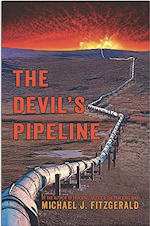GUYANA, South America - Just the title,
"Wild Coast: Travels on South America's Untamed Edge" is good enough to make most people want to reach to grab this book from the shelf. And so in the tiny Watkins Glen, New York library, I did just that last week, picking up this tome by John Gimlette, a veteran traveler and an author with plenty of wit.
 |
| Gimlette |
"Wild Coast" was hard to get into at first. Then suddenly
interesting gave way to
fascinating as he progresses across Guyana to Surinam to French Guiana, detailing out the rugged life there and revealing a history that alternately makes readers want to laugh or cry. He quotes from the works of Sir Walter Raleigh, looks at the history of slavery in the area and walks readers through the various revolutions, upheavals and events that shaped what's left for travelers to see in the 21st century.
The section on Jonestown - where the Oakland, Calif.-based Peoples' Temple mass suicide/massacre happened in November 1978 - was particularly compelling for me.
I lived in Northern California when that all took place and watched in horror from a distance.
And to this day, when people say that someone '
drank the Kool-aid' they mean someone has swallowed a line of dangerous bullshit. For the hundreds of people at the Peoples' Temple in the jungle, the Kool-aid drinks ended in their deaths.

The whole thing still makes me wince, though the author reveals some details about the event that I didn't know. Yes,
you will have to read it yourself to see some of the nuance of what I think major media missed.
Gimlette's book is a first-person account as he travels by dugout canoe, on foot, by steamer, aboard a tugboat and sometimes in strange cars with even stranger people. Yet the character of the jungles and rivers of these nation-states rival the people he meets as he researches the book. It's hard to read parts of
Wild Coast without breaking out in a sympathetic humidity-drenched sweat.
This is
no armchair travelogue trying to convince you to take a vacation. Only the most neurotic of travelers would read any of this and think, '
Gee, let's pack and bag and head off to Surinam for the weekend.'
 |
| Terry Thomas |
Still, a part of me read this book and wants to tour these great rivers, meet the people and see the historical sites he did - even if they are in tatters or barely there.
As I read about the caimans, the snakes, the oily water and piranha-like fish, I kept thinking of the late gapped-tooth British actor Terry Thomas, whose character in a film talked about traveling in Africa along 'the great gray-green greasy Zambezi.'
He would have been quite at home in a movie based on
Wild Coast.
The great gray-green greasy Zambezi, indeed.

















